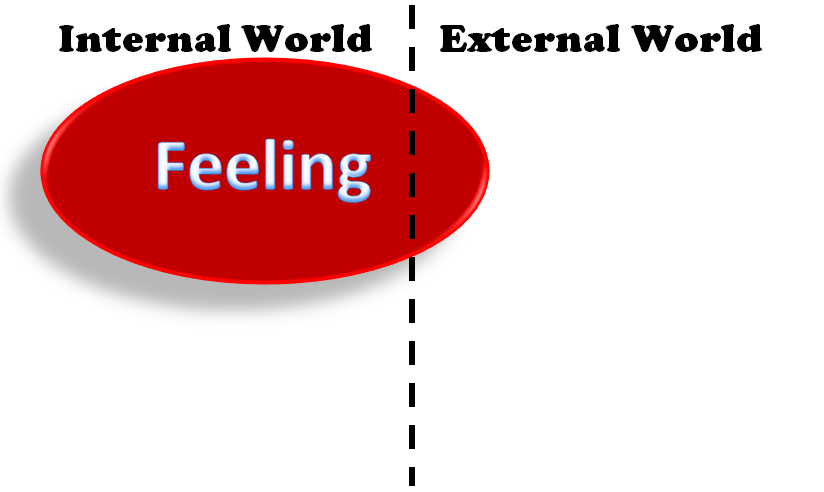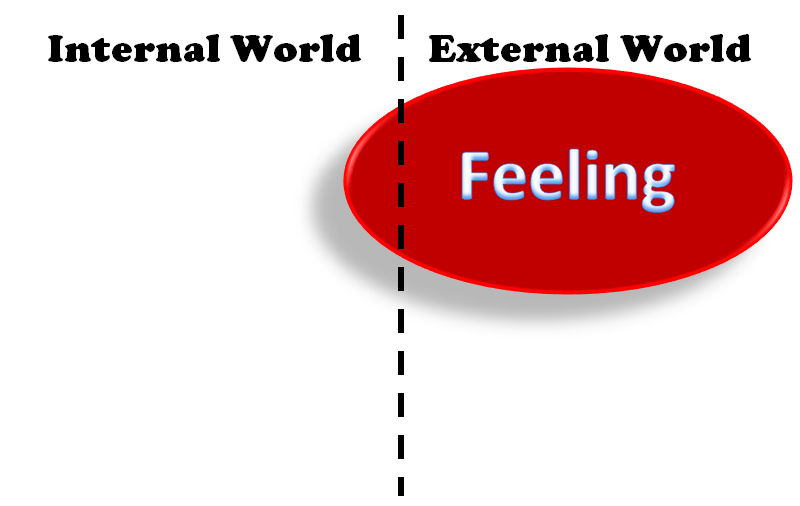Everyone has feelings. Some are more expressive. Others are more reserved. But everyone has feelings. In Myers & Briggs terms, the Feeling function simply means there is a preference in making decisions by considering what the people involved in the situation care about and what points of view they hold. This results in a natural emphasis on personal values and what is best for the people involved, frequently allowing the feeler to create or maintain harmony within the group.
A person's preference for Extroversion or Introversion has an impact on how the Feeling function is used in decision-making, just like it does for Sensing and iNtuition.
Introverted Feeling
When the Feeling function is introverted, a person naturally seeks harmony between their actions, thoughts, and personal values. Though they may not always articulate their personal values (in fact, they don't always know exactly what those personal values are until there is conflict), a person who prefers introverted Feeling experiences great difficulty and discomfort in situations where they feel pressure to act or speak or even think in a way that violates their core values. About 54% of the population introverts their feelings.
The INFP and ISFP prefer this function above all others, while the ENFP and ESFP use it to support their extroverted iNtuition and Sensing respectively. INTJs, ISTJs, ENTJs, and ESTJs also introvert their Feeling function as the third and fourth preferences, which means it is not as pronounced in their behavior.
When a person uses this function to make judgments, it is often hard to verbalize or explain since it is frequently associated with feelings or gut reactions. It can be best described as an internal filter that captures incoming data and matches what fits with the person's perspective and value system.
You can know that you or someone else is likely using introverted Feeling when a value line is crossed and the response sounds like, "Okay. That's enough. I have to say something here." Other times, the process may work internally and not be verbally expressed, but rather, shows up in actions. Either way, introverted Feeling allows these people to "get a good read" on someone. Are they being fake or open and honest? Are they trustworthy or are they up to something?
Since introverted Feeling produces the ability to discern between very similar yet distinct emotional expressions, authors, philosopher, singers/songwriters, and actors often use this decision-making function the most.
Extroverted Feeling
Can't we all just get along? This could be the battle cry of those with extroverted Feeling. Seeking harmony with others and between others is what it means to extrovert your Feeling function. As such, both interpersonal and cultural values are considered. About 46% of the population makes their decisions in this manner.
Among the most extroverted Feelers are the ENFJs and ESFJs. They are followed closely by INFJs and ISFJs, who use this function to support their introverted iNtuition and Sensing functions. ENTPs, ESTPs, INTPs, and ISTPs also extrovert their Feeling function, but as the third or fourth preference. Therefore, it is not as frequently observed in their behavior.
However, it is notable that this last group are all Thinkers who extrovert their Feeling function. This means these are the Thinkers who are often able to pick up on how people in the situation are feeling or experiencing them. This is a unique and valuable combination.
It is extroverted Feeling that produces a desire to connect with others--or avoid others as the case may sometimes be. Recipients can recognize it in expressions of friendliness and openness or self-disclosure. Being polite or nice, friendly or considerate involve extroverted Feeling. It is often this same function in action when a person intervenes to try to get people to be kind to each other. And this function can also be seen in action through the facial expressions of the Feeler. (Extroverted Feelers' faces often tell on them...ask me how I know!)
The use of extroverted Feeling enables the person to meet others' desires whether or not they are verbally expressed. They often can sense what is desired.
A request for self-disclosure from an extroverted Feeler may be connected to a challenge in "reading" the other person and due to a desire to better adjust behavior to their expectations. This is because there is a pull to be responsible and careful with others' feelings. Extroverted Feelers can often be found among our culture's "teachers"--talk show hosts, philanthropists, statesmen, and activists.
Whether introverted or extroverted, Feeling is just one way of making decisions.


